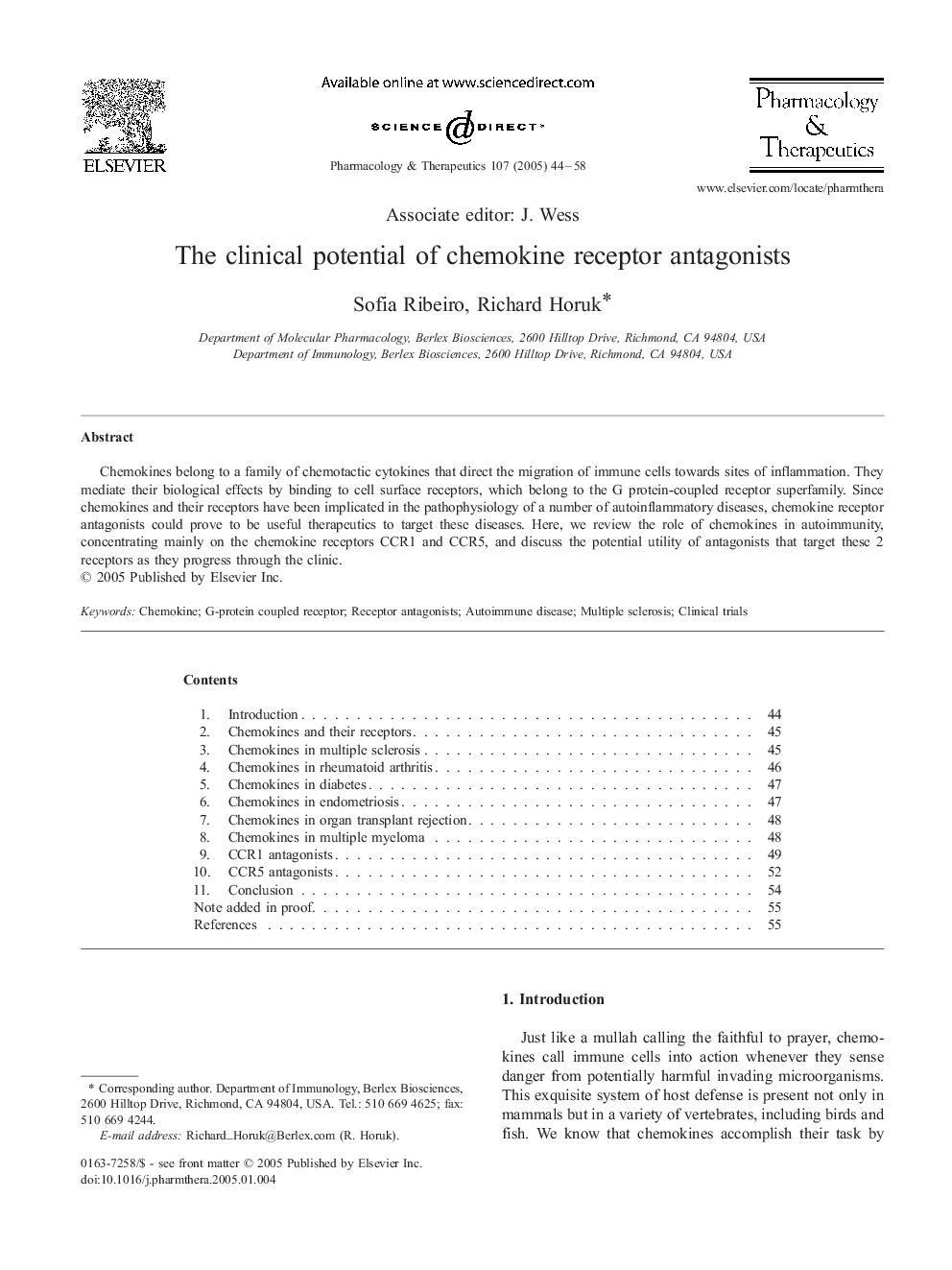| Article ID | Journal | Published Year | Pages | File Type |
|---|---|---|---|---|
| 9015883 | Pharmacology & Therapeutics | 2005 | 15 Pages |
Abstract
Chemokines belong to a family of chemotactic cytokines that direct the migration of immune cells towards sites of inflammation. They mediate their biological effects by binding to cell surface receptors, which belong to the G protein-coupled receptor superfamily. Since chemokines and their receptors have been implicated in the pathophysiology of a number of autoinflammatory diseases, chemokine receptor antagonists could prove to be useful therapeutics to target these diseases. Here, we review the role of chemokines in autoimmunity, concentrating mainly on the chemokine receptors CCR1 and CCR5, and discuss the potential utility of antagonists that target these 2 receptors as they progress through the clinic.
Keywords
Related Topics
Health Sciences
Pharmacology, Toxicology and Pharmaceutical Science
Pharmacology
Authors
Sofia Ribeiro, Richard Horuk,
